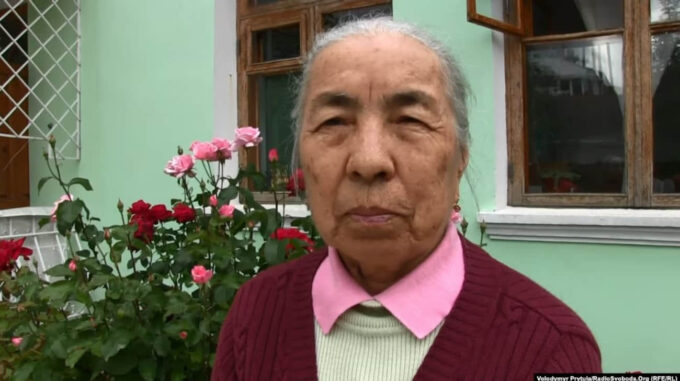In Crimea, the death of one of the most prominent figures in the history of the Crimean Tatar national movement—Aishe Seyitmuradova—was announced

She was a legendary dissident, human rights defender, and activist whose life was deeply intertwined with the struggle for the rights of the indigenous people of the peninsula. This occurred on June 1, 2024, in the occupied Crimea, under Russian control, at the age of 88. The news quickly spread among Ukrainian and Crimean Tatar public figures and volunteers. Refat Chubarov, the Head of the Mejlis of the Crimean Tatars, expressed his deep condolences in a Facebook post, describing Seyitmuradova as "a legendary dissident, a political prisoner during the Soviet Union era, a journalist, and a historian—truly a symbol of the Crimean Tatar people's fight for freedom and dignity." "Once again, we receive sad news from Crimea, now under Russian occupation, which is hard to accept: at 88 years old, one of the most prominent representatives of our movement has passed away. Her life is an example of indomitable will and dedication to the idea of returning home," Chubarov stated. Aishe Seyitmuradova was one of the most well-known figures in the Crimean Tatar national movement. Born in 1936 on the peninsula, throughout her life she became a symbol of the struggle for the rights of the Crimean Tatar people. In 1964, she joined the resistance movement that grew in the Samarqand region—an area where many Crimean Tatars had found temporary refuge after deportation. In her activism, she repeatedly met with representatives of the Soviet authorities, including targeted delegations to the Central Committee of the Communist Party of the Soviet Union, seeking ways to draw attention to the unjust repressive regime against her people. For her active civic stance and fight for rights, she was repeatedly persecuted. In 1966, she was arrested on charges of "inciting national hatred" and sentenced to three years probation. By 1971, she was imprisoned on more serious charges, including "spreading knowingly false confessions," which officially sought to defame the Soviet order and system. She served her sentence in Mordovian camps and endured the trials of repression and efforts by the Soviet authorities to break her spirit. However, she did not break; after her release in 1974, she continued her human rights activism, fighting for the rights of Crimean Tatars and their return to homeland. Fearing further repressions, she emigrated to the United States in 1978, where she later became an active journalist. She worked for well-known radio stations such as Radio Liberty, BBC, Radio Free Europe/Radio Liberty, and Deutsche Welle, long covering issues of her people, including the history of repression, Russification, assimilation, and the Crimean Tatar struggle for self-determination. She was the voice of those who could not remain silent and an unwavering defender of justice and truth. Aishe Seyitmuradova is not only a person who left behind a rich public and historical legacy but also a symbol of resilience and steadfastness in the Crimean Tatar movement. She has inspired countless generations of fighters for the return of identity and rights to their land. Her life embodied struggle, courage, and deep patriotism, which continue to inspire supporters of returning to their homeland and advocate for the rights of the Crimean Tatar people under challenging conditions today. Her death is a profound loss to all who strive for justice and dignity.

